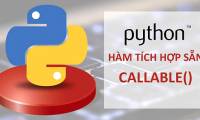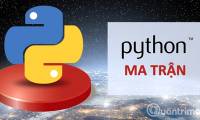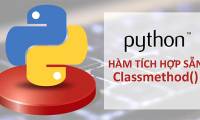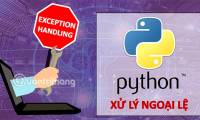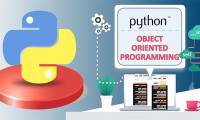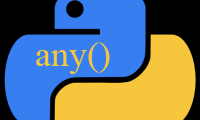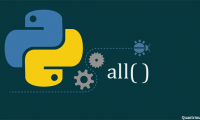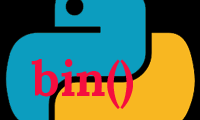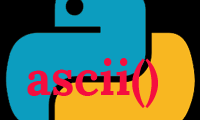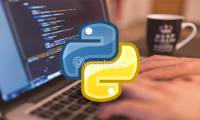
The hex () function is one of Python's built-in functions, used to convert an integer into the corresponding hexadecimal form.

The exec () function used to execute Python programs dynamically can be string or object code. How does exec () function syntax, what parameters do it have, and how is it used?

Where are the best open source Python projects that can be learned? This is probably one of the most frequently asked questions that the 'newbie' feet wet to step into the world
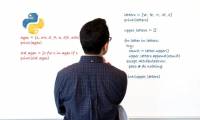
You may have heard about Python's List Comprehension and may have used it without really understanding them. Therefore, this article will introduce and guide you how to use List

Click is a Python package to write command line interfaces with as little code as possible. This article will show you how to use Click to create the command line program.

You should use an interactive interactive shell. These are sites that allow you to write, execute Python code and immediately see the results, without installing anything.

Arrays are a fundamental part of all programming languages, it is a collection of elements of a single data type, for example, integer arrays, string arrays. However, in Pythong,

callable () in Python checks whether objects can be called. If the object is allowed to call, the function returns TRUE, otherwise it returns FALSE. How does the callable ()

In Python, the chr () function returns a character (a string) from an integer that represents the unicode of the returned character.

In this article, we will learn about Python matrices using nested lists and the NumPy library.

In Python, the classmethod () function returns a class method for the function. How is the syntax of classmethod () function, what parameters does it have and how to use it?

In this article, we will work with you to learn about file operations in Python. More specifically, how to open files, read files, write to files, close files, and methods to work

Python also provides a variety of methods to handle various directory-related operations. In this article, we will learn about managing files and directories in Python, namely

Python often produces exceptions when an error occurs during execution. Quantum will work with you to learn about the different exceptions built into this language.

In this article, Quantum will work with you to learn how to handle exceptions in Python using Try, Except and Finally. This will motivate you to write more neat, readable and

Python is a powerful object-oriented programming language. Therefore, creating and using objects is very easy. This article will introduce some basic concepts in object-oriented

In Python, any () function returns True if any element of an iterable is True. If no True element is present, any () function will return False.

In Python, all () returns True when all iterable elements are True or iterable empty and return False in the remaining cases. How does the function all () have syntax, what

In Python programming, the bin () function converts and returns the binary string of the given integer. So what is the syntax of bin () function, parameters and how to use bin ()?

In Python, the ascii () function returns a string containing the representation of the object that can print. It ignores non-ASCII values in the string using x, u or U.
 The hex () function is one of Python's built-in functions, used to convert an integer into the corresponding hexadecimal form.
The hex () function is one of Python's built-in functions, used to convert an integer into the corresponding hexadecimal form. The exec () function used to execute Python programs dynamically can be string or object code. How does exec () function syntax, what parameters do it have, and how is it used?
The exec () function used to execute Python programs dynamically can be string or object code. How does exec () function syntax, what parameters do it have, and how is it used? Where are the best open source Python projects that can be learned? This is probably one of the most frequently asked questions that the 'newbie' feet wet to step into the world
Where are the best open source Python projects that can be learned? This is probably one of the most frequently asked questions that the 'newbie' feet wet to step into the world You may have heard about Python's List Comprehension and may have used it without really understanding them. Therefore, this article will introduce and guide you how to use List
You may have heard about Python's List Comprehension and may have used it without really understanding them. Therefore, this article will introduce and guide you how to use List Click is a Python package to write command line interfaces with as little code as possible. This article will show you how to use Click to create the command line program.
Click is a Python package to write command line interfaces with as little code as possible. This article will show you how to use Click to create the command line program. You should use an interactive interactive shell. These are sites that allow you to write, execute Python code and immediately see the results, without installing anything.
You should use an interactive interactive shell. These are sites that allow you to write, execute Python code and immediately see the results, without installing anything. Arrays are a fundamental part of all programming languages, it is a collection of elements of a single data type, for example, integer arrays, string arrays. However, in Pythong,
Arrays are a fundamental part of all programming languages, it is a collection of elements of a single data type, for example, integer arrays, string arrays. However, in Pythong, callable () in Python checks whether objects can be called. If the object is allowed to call, the function returns TRUE, otherwise it returns FALSE. How does the callable ()
callable () in Python checks whether objects can be called. If the object is allowed to call, the function returns TRUE, otherwise it returns FALSE. How does the callable () In Python, the chr () function returns a character (a string) from an integer that represents the unicode of the returned character.
In Python, the chr () function returns a character (a string) from an integer that represents the unicode of the returned character. In this article, we will learn about Python matrices using nested lists and the NumPy library.
In this article, we will learn about Python matrices using nested lists and the NumPy library. In Python, the classmethod () function returns a class method for the function. How is the syntax of classmethod () function, what parameters does it have and how to use it?
In Python, the classmethod () function returns a class method for the function. How is the syntax of classmethod () function, what parameters does it have and how to use it? In this article, we will work with you to learn about file operations in Python. More specifically, how to open files, read files, write to files, close files, and methods to work
In this article, we will work with you to learn about file operations in Python. More specifically, how to open files, read files, write to files, close files, and methods to work Python also provides a variety of methods to handle various directory-related operations. In this article, we will learn about managing files and directories in Python, namely
Python also provides a variety of methods to handle various directory-related operations. In this article, we will learn about managing files and directories in Python, namely Python often produces exceptions when an error occurs during execution. Quantum will work with you to learn about the different exceptions built into this language.
Python often produces exceptions when an error occurs during execution. Quantum will work with you to learn about the different exceptions built into this language. In this article, Quantum will work with you to learn how to handle exceptions in Python using Try, Except and Finally. This will motivate you to write more neat, readable and
In this article, Quantum will work with you to learn how to handle exceptions in Python using Try, Except and Finally. This will motivate you to write more neat, readable and Python is a powerful object-oriented programming language. Therefore, creating and using objects is very easy. This article will introduce some basic concepts in object-oriented
Python is a powerful object-oriented programming language. Therefore, creating and using objects is very easy. This article will introduce some basic concepts in object-oriented In Python, any () function returns True if any element of an iterable is True. If no True element is present, any () function will return False.
In Python, any () function returns True if any element of an iterable is True. If no True element is present, any () function will return False. In Python, all () returns True when all iterable elements are True or iterable empty and return False in the remaining cases. How does the function all () have syntax, what
In Python, all () returns True when all iterable elements are True or iterable empty and return False in the remaining cases. How does the function all () have syntax, what In Python programming, the bin () function converts and returns the binary string of the given integer. So what is the syntax of bin () function, parameters and how to use bin ()?
In Python programming, the bin () function converts and returns the binary string of the given integer. So what is the syntax of bin () function, parameters and how to use bin ()? In Python, the ascii () function returns a string containing the representation of the object that can print. It ignores non-ASCII values in the string using x, u or U.
In Python, the ascii () function returns a string containing the representation of the object that can print. It ignores non-ASCII values in the string using x, u or U.

